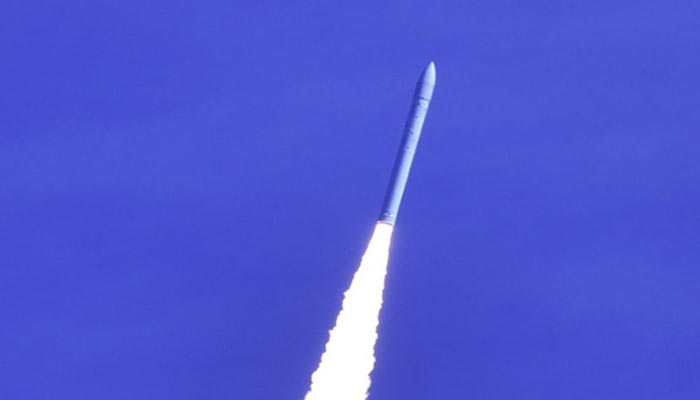A Japanese space startup’s attempt to launch a rocket carrying satellites into orbit was aborted minutes after liftoff on Wednesday.
This was Tokyo-based Space One’s second attempt to launch the Kairos small rocket, nine months after the company’s first try ended in an explosion. The Kairos No 2 rocket lifted off from a site in the mountainous prefecture of Wakayama in central Japan. The flight lasted about 10 minutes before it was terminated because “the achievement of its mission would be difficult”, Space One said.
The cause of the flight failure was not immediately known, but footage circulating on social media showed the 18-metre (59 ft) solid-propellant rocket blasting off from Spaceport Kii in western Japan at 11:00 am (local time) but soon losing stability in its trajectory as it ascended.
As many as five small satellites, including one from the Taiwan Space Agency, were on board the rocket headed into sun-synchronous orbit roughly 500 kilometres above the Earth’s surface.
The company said it is investigating the incident and will host a press conference at 2:00 pm local time.
Space One hopes to become Japan’s first company to put a satellite into orbit in a boost to Asia’s second-largest economy’s lagging space industry. But the debut flight of its Kairos rocket in March, carrying a Japanese government satellite intended to monitor North Korea’s missile launches and other military activities, exploded five seconds after launch.
At the time, Space One said that inappropriate flight settings triggered the rocket’s autonomous self-destruct system even though no issues were found in its hardware. The company said it had fixed the cause of the debut flight failure.
Tokyo-based Space One was founded in 2018 by Canon Electronics, IHI’s aerospace unit, construction firm Shimizu and a state-backed bank, with the goal of launching 20 small rockets a year by 2029 to capture growing satellite launch demand. Japan hopes the company can pave the way for a domestic space industry that can compete with the United States and other space leaders.

